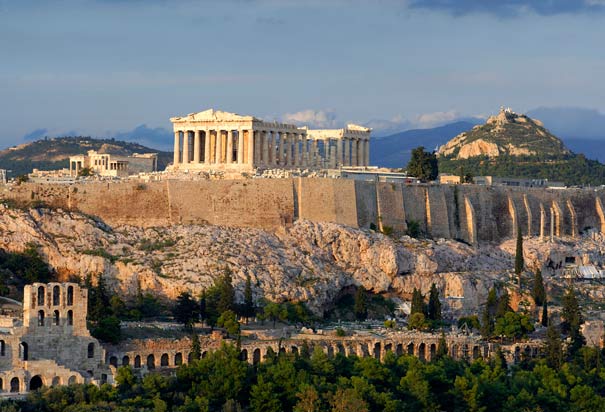Athens is the capital city of Greece and has been continuously inhabited for over 7000 years. In ancient times, it was one of the main city-states that competed for power against Sparta, Corinth and Thebes. It also provided the backdrop for various myths and legends for ancient Greeks.
Its name derives from the goddess of wisdom, Athena, who became the city's patron goddess after a contest with Poseidon. The two gods competed for who would get the honour of becoming the patron god of the city, and offered gifts to the Athenians. Poseidon hit the ground with his trident and created a spring, showing that he would offer significant naval power. Athena, on the other hand, offered the olive tree, a symbol of prosperity and peace. The Athenians, led by King Cecrops I, decided to take Athena's gift, thus making her the patron goddess.
The city was also the starting point for the story of Aegeus and Theseus. Aegeus was the king of Athens; during some games that were organised in the city, the son of King Minos of Crete was killed, and Minos waged war against Athens, emerging victorious. As punishment, Athens was forced to send young men and young women to Crete annually, in order to be sacrificed to the Minotaur, who dwelt in the labyrinth under the palace of Minos. At some point, though, Theseus, son of Aegeus, decided to go as part of the sacrifice, planning to kill the Minotaur. He was successful in his quest, but upon returning to Athens, he forgot to change his ship's sails to white; when Aegeus saw the black sails, meaning that Theseus had died in the labyrinth, he fell into the sea, and drowned, giving his name to what now is called the Aegean Sea.

Comments
Post a Comment